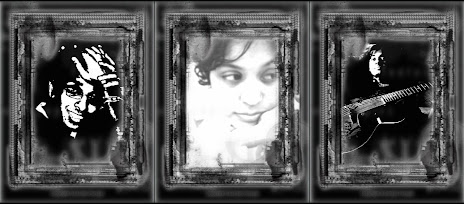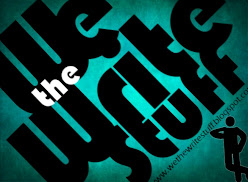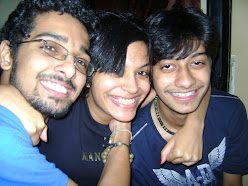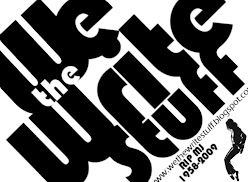
While I spent most of high school trying to pass the wretched subject, The Algebra of Infinite Justice by Arundhati Roy was a book I’d been looking for over a year. It’s sad that only her fictional The God of Small Things will haunt shelves, while most of India is ignorant to the fact that this lyrical author is one of the greatest political revolutionaries we have today. And no, I’m sorry. Im sure Salman Rushdie is a wonderful writer, but minus Midnight’s Children, the man is the greatest alternative to sleeping pills. So, in my book, while he might have a brilliantly heightened political opinion, it isn’t one I can wade through.
Arundhati Roy has conversations with her readers. You forget you’re holding a moderately heavy paperback and listen and converse with a writer who really knows her politics. A student of architecture, Roy’s words have a beautiful symmetry. Roy took the best possible thing from her prestigious Booker: supreme confidence to write whatever she damn well pleases. Of course, Im sure the money and autographs didn’t hurt, but confidence and a sense of self can take you to pinnacles of risk and help you survive. Her scathing poetry rips America’s mission of “Infinite Justice” to shreds – a mission where the most powerful country in the world is slowly and steadily transforming the world’s poorest into dust. If that isn’t infinite justice, what is?
However, someone in the Pentagon must have felt some misgivings. “This doesn’t sound right”, he must have thought. “Where’s the justice in this whole operation?”, he must have thought. Sadly, he didn’t think any of these things, for the operation was renamed “Enduring Freedom”. Basically, as Roy points out, the US has put these two words together without the slightest awareness of the human effort of struggle. In a reality far from US cruelty, “Enduring Freedom” actually means that the Afghanistan population is enduring what the White House and the Pentagon call freedom. How infinitely just, no?
Arundhati Roy doesn’t say “we should do so and so”. She says. “this is how it is, this is how I feel, now you have facts and an opinion. Come up with your own opinion and do what is right”. She makes her readers face intolerance and make sense of global confusion. She makes them understand what it means to be completely alive and fully awake in the world, and “getting close to and listening to those for whom this world has become intolerable”.
A year ago, one of my best friends told me what being fully alive meant. After reading Roy, I understood where she got it from. It’s the focal point of the whole book, and when put alongside the infinite justice of the US, the beauty of Roy makes you cringe. Roy puts forth that “the only dream worth having is to live while you’re alive and die when you’re dead”
Meaning?
“To love. To be love. To never forget your own insignificance. To never get used to the unspeakable violence and vulgar disparity of life around you. To seek joy in the saddest places. To pursue beauty to its lair. To never complicate what is simple or simplify what is complicated. To respect strength, never power. Above all, to watch. To try and understand. To never look away. And never, never to forget”
Oasis, Robin & Service
-
I met Robin for a coffee on my way out of Melbourne. This Australia trip
was meant to be a […]
The post Oasis, Robin & Service appeared first on Anish Ma...
3 months ago











hey kyra, nice post.
i loved the part in the end "to never forget your own insignificance."...
gonna go to sleep with that thought.
looking forward to more of your posts.
keep blogging. :)
Isha
March 13, 2009 at 10:49 PM
Awesome post. as ever.
my own intro to Roy was rather unfortunate and left a bit of a bad taste in my mouth, but I will contend that while her political views are generally well founded, the reason she'll always get more bhao is the fact that she puts them across so beautifully. Most people who write well either have baseless ideas or vice versa and it is, for the sake of her opinions which can be widely accepted as noble, a positive sort of impact shes making.
I WILL make it a point to read some more of her essays, but God of Small Things will forever be 'that dreadful book i force read for marks'...
You the...
Harry
March 13, 2009 at 11:58 PM
Kyra
March 14, 2009 at 2:06 AM
Kyra said...
seshasai - you are spam. i dont like you.
isha - thank you, that part IS very beautiful. you should borrow the book, its the kind your political self will appreciate :)
harry - like ive mentioned, what she did with God of Small Things, cant be compared to her other work, because that was fiction. It sucks that that book was ruined for you, but that excuse wont work here. hint hint (read the book!) I agree that she'll probably get more bhao because she writes beautifully. but hey, why not? as long as you're getting your point across to your readers, does it matter if youre raw or poetic, blunt or beautiful?
Kyra
March 14, 2009 at 2:07 AM
Kyra,
Is it weird or is it weird that I just posted those lines on my blog a couple of days ago...?
I never did like God of Small Things much. Because I didn't the story was great. Her writing, as always, was inimitable.
Her essays are wonderful because yes, they speak to you, and they always make me feel like I should really get down to the nittygritties of what I believe in, not jst skim the surface.
Sometimes I feel like I'm reading sheer poetry in prose.
Those are my favourite lines, always will be.
Quaint Murmur
March 28, 2009 at 5:01 PM